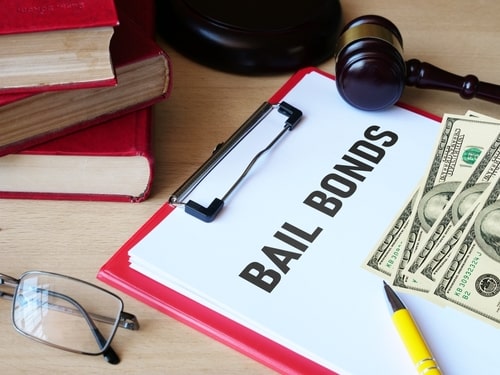What is Bail Bond Forfeiture?
 In the state of Texas, bail bond forfeiture is a serious matter that can have significant consequences for both the defendant and the bail bond company. When arrested and charged with a crime, the person in question may be released on bail pending his trial. The purpose of bail is to ensure the defendant's appearance in court as required. The bail bond may be forfeited if the defendant fails to attend his scheduled court appearance. A Texas bail bond professional can help explain what may happen if you forfeit your bond.
In the state of Texas, bail bond forfeiture is a serious matter that can have significant consequences for both the defendant and the bail bond company. When arrested and charged with a crime, the person in question may be released on bail pending his trial. The purpose of bail is to ensure the defendant's appearance in court as required. The bail bond may be forfeited if the defendant fails to attend his scheduled court appearance. A Texas bail bond professional can help explain what may happen if you forfeit your bond.
The Bail Bond Process
When a defendant is granted bail, he has two options: pay the entire amount or secure a bail bond through a licensed bail bond company. Most defendants choose the latter option, as it typically requires paying only a percentage of the bail amount (usually 10-15%) as a non-refundable fee to the bail bond company.
The court receives a surety bond from the bail bond company to ensure the person's presence on all court dates. If the defendant complies with the terms of his release and attends all required court appearances, the bond is dissolved at the conclusion of the case.
What Happens When a Defendant Skips Bail?
If a defendant fails to attend court as required, the judge will issue a warrant for the individual's arrest and may order the forfeiture of the bail bond. At this point, the bail bond company is responsible for paying the entire bail to the court.
The bail bond company will typically hire a bounty hunter to avoid financial loss to locate and apprehend the defendant. In Texas, bounty hunters, also known as fugitive recovery agents, must be licensed by the Texas Department of Public Safety and adhere to strict guidelines when apprehending a fugitive.
Consequences for the Defendant
When a defendant skips out on bail, and the bond is forfeited, the person faces serious consequences beyond the initial criminal charges. In addition to the arrest warrant, there may be additional criminal charges related to failing to appear in court, such as contempt of court or bail jumping.
If the defendant is apprehended and returned to custody, there can be higher bail amounts or even denied bail altogether, as he has demonstrated a flight risk.
The Role of the Indemnitor
In many cases, a friend or family member of the defendant will act as an indemnitor or co-signer on the bail bond. The indemnitor accepts financial responsibility for the total bail amount if the defendant fails to show up in court and the bond is forfeited.
Indemnitors must understand the risks and responsibilities associated with co-signing a bail bond. The willing individual should have confidence in the defendant's willingness to comply with the terms of his release and attend all court dates as required.
Avoiding Bail Bond Forfeiture
To avoid bail bond forfeiture, defendants must take his responsibilities seriously and prioritize his court appearances. Maintain close communication with the bail bond company and attorney to keep everyone informed of any changes in contact information or circumstances that may affect the ability to attend court.
Suppose a defendant knows he cannot make a scheduled court date. In that case, he should contact his attorney immediately to discuss his options and potentially request a continuance from the court.
Contact a Dallas, TX Bail Bond Professional
Bail bond forfeiture is a significant issue with consequences that extend beyond the defendant to the bail bond company and any indemnitors. A McKinney, TX bail bond professional can explain the process more. Call 214-747-4110 to get help with bond-related issues.










